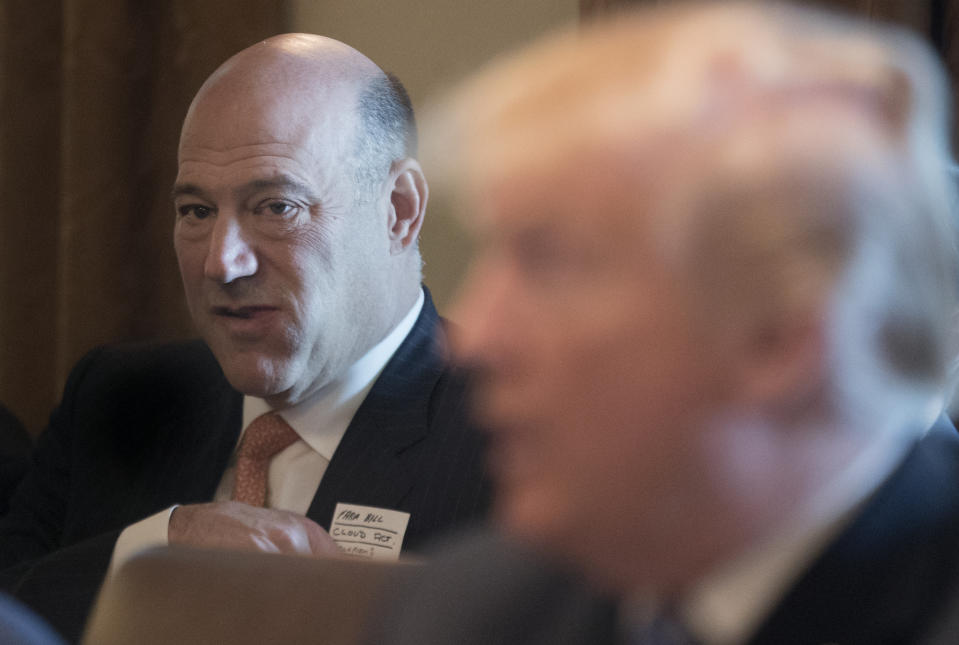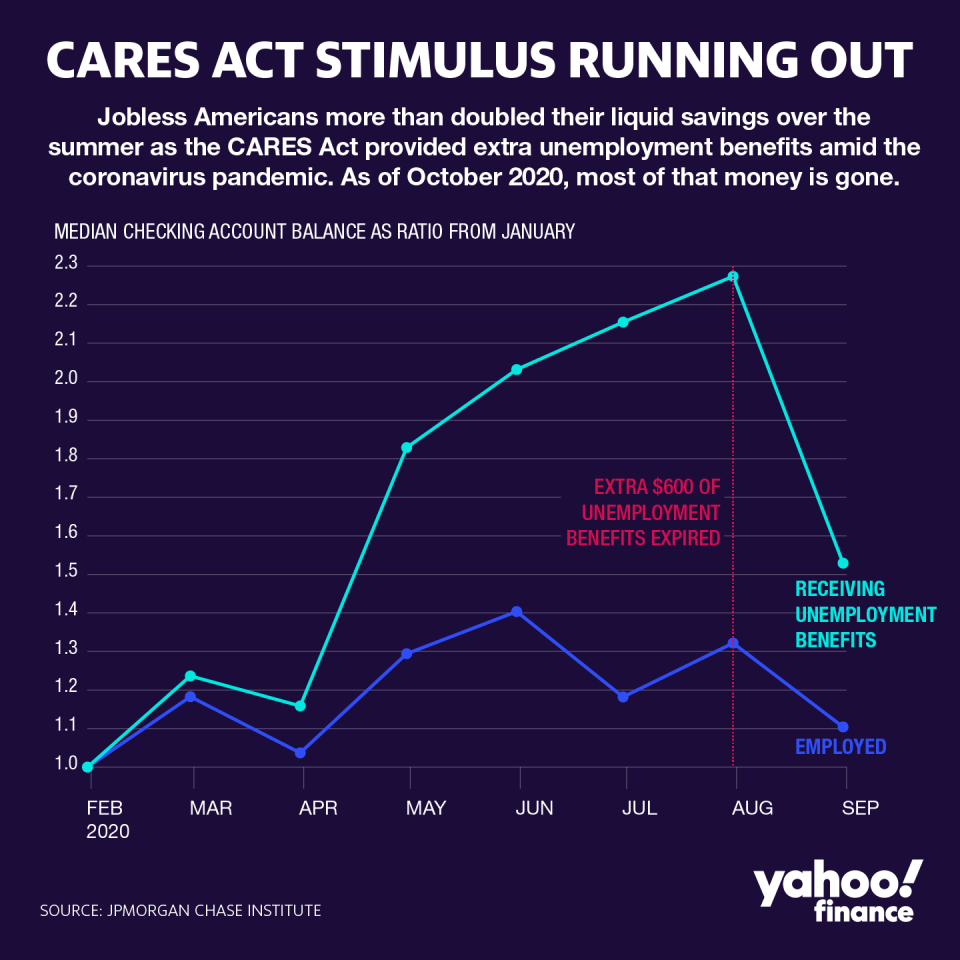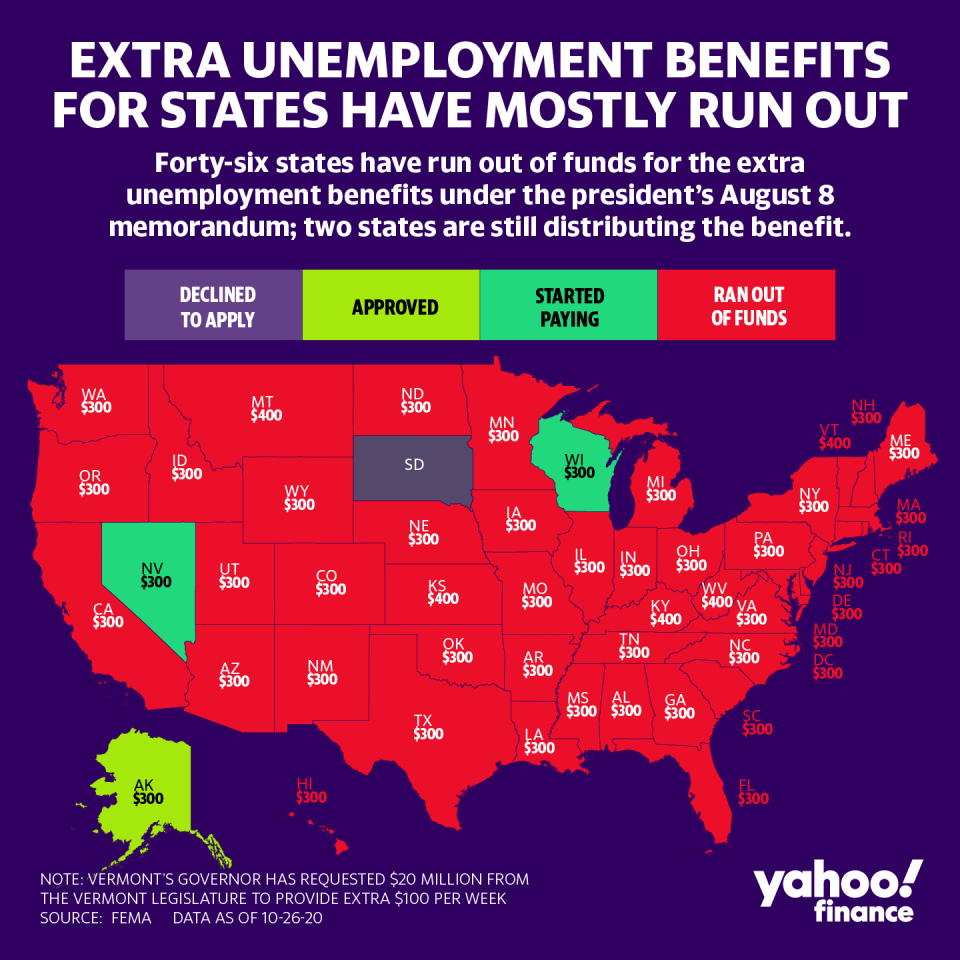'100% probability' that stimulus deal won't happen before election, former Trump advisor Gary Cohn says
Gary Cohn, former head of the Trump administration's National Economic Council and a former executive at Goldman Sachs, flatly said that there is no chance of a stimulus deal passed before Nov. 3.
“Now... no one thinks we're gonna have fiscal stimulus until after the election,” Cohn said at Yahoo Finance’s “All Markets Summit” on Monday. “That’s a 100% probability — we won’t.”

Three months after the negotiations began, House Speaker Nancy Pelosi (D-CA) and Treasury Secretary Steven Mnuchin have come closer on the top line of the deal while key disagreements remain. Along with the disagreements between the White House and Democrats, a potential bill will likely face stiff opposition in the Senate and there may not be enough time for it to become law before the election.
Read more: How long will your unemployment benefits last?
“Last week, we thought, or we were being told that we're making enormous progress with fiscal stimulus that Secretary Mnuchin and Speaker Pelosi were very very close,” Cohn noted. “We were on the verge.”
Stimulus for Americans amid the coronavirus pandemic largely ran out at the end of July, when the extra $600 per week in unemployment benefits for millions of people expired. President Trump subsequently signed an executive memorandum to provide an extra $300 in unemployment benefits, but that has also largely run out. Confirmed cases of coronavirus in the U.S., meanwhile, are hitting new highs and unemployment remains elevated by historical standards.

President Trump has been vocal about supporting a new stimulus deal, even saying that he’ll go above the Democratic $2.2 trillion proposal. At the same time, however, the president has repeatedly criticized the Democratic proposal and the funding for state and local governments.
“Pelosi only looking to Bail Out badly run Democrat Cities,” President Trump said in a tweet on Tuesday. “She has little interest in helping out the ‘people.’”
Pelosi has repeatedly expressed optimism that a bipartisan stimulus bill would pass before the election despite remaining disagreements. As of Monday, the two parties have not yet reached an agreement and talks are slowing down.
“Ten days after Secretary Mnuchin went on CNBC to declare that he was accepting our testing plan, the Administration still refuses to do so,” Pelosi said in a statement on Monday.

‘He's not going to even bring it up for a vote’
It may be already too late for a bill to pass through government bureaucracy before Nov. 3 even if they reach a deal.
When a deal is reached, the legislation has to be available for lawmakers to review for 72 hours before they can vote on it.
Even if the legislation passes the Democratic-controlled House this week, the next hurdle would be putting it for a vote in the Senate. It would need 60 votes to pass the Senate, meaning at least 13 Republican senators would have to vote in favor of the legislation.

“This only happens if [Senate Majority Leader Mitch] McConnell believes half of his caucus at least is going to vote for it,” Mark Harkins, a former congressional staffer and senior fellow at Georgetown’s Government Affairs Institute, told Yahoo Money previously. “Unless he believes there are 26 Republicans who are going to vote for this, he's not going to even bring it up for a vote.”
McConnell agreed to put a bipartisan deal to a vote in the Senate “at some point” but didn’t specify whether that would happen before or after the election if a deal is reached imminently.
“If a presidentially supported bill clears the House, at some point, we’ll bring it to the floor,” McConnell told reporters last week.
Denitsa is a writer for Yahoo Finance and Cashay, a new personal finance website. Follow her on Twitter @denitsa_tsekova.
Read more:
Follow Yahoo Finance on Twitter, Facebook, Instagram, Flipboard, SmartNews, LinkedIn, YouTube, and Reddit.

 money
money 
